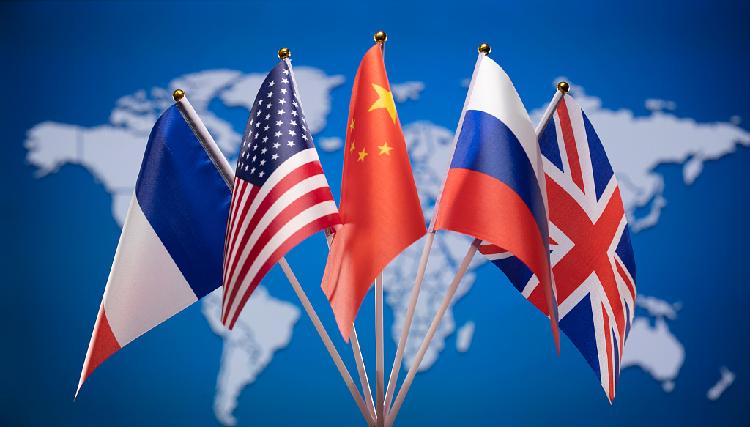UNSC: A Toothless Body with Veto Power
The UN Security Council, the most important component of the UN system, has made itself largely irrelevant.
Insight Bureau: The United Nations has fallen far short of its goals to “maintain international peace and security,” “develop friendly relations among nations’’ and “achieve international cooperation in solving international problems.” The UN Security Council, the most important component of the UN system, has made itself largely irrelevant.
The UN failed to rein in USA when it attacked Iraq and Afghanistan and ruined those countries beyond repair. They failed to restore peace in the Middle East. And, now they look more helpless while Russia continues to launch attacks on Ukraine.
China has blocked any significant role for the UN’s executive body lest it be criticized for its initial mishandling of the outbreak and be held responsible for the consequences. Meanwhile, the World Health Organization deferred to China early on and has been further weakened by the United States’ decision to withdraw from it. The result is that the major powers get the UN they want, not the one the world needs.
None of this is new. During the four decades of the Cold War, the UN became a venue for US-Soviet rivalry. The fact that the Cold War did not turn hot (as great power competition had twice before in the twentieth century) was due less to what happened at the UN than to nuclear deterrence and a balance of power that compelled significant caution in US and Soviet behavior. The principal occasion when the UN intervened to maintain international peace – committing an international force to reverse North Korean aggression against South Korea – it could do so only because the Soviet Union was boycotting it.
There were widespread hopes that the UN could play a larger role in the Cold War’s aftermath. Optimists appeared to be vindicated in 1990 when countries of the world came together through the UN to oppose and ultimately reverse Saddam Hussein’s conquest of Kuwait.
Veto- The Ultimate Power
The League of Nations was supposed to help prevent WWII, but it was toothless, basically powerless, and its members didn’t enforce its provisions. At the close of WWII, they attempted to establish a stronger covenant called the United Nations, that the United States managed to get a fairly large stamp on the creation of.
Support Independent Journalism? Keep us live.
Basing powers off a lower General Assembly with almost no power and a governing Security Council with the powers of Veto, the initial United Nations continued to have no power over “Eagles” to paraphrase Mussolini’s oft-quoted criticism of the League of Nations, but it could police minor powers and allow for a stronger UN than the LN.
The use of the Veto powers both from the beginning and with the evolution of the security council is to prevent the extra-governmental body from controlling the 5 permanent members, while depressing the power and helping to police those members without the veto.
The funny thing is, it proved to be a powerful force for maintaining the power of the UN. When the former Soviet Union boycotted the UN, pushing to eventually scrap the entire thing, the United States used their absence to pass a resolution to take the UN to war against North Korea.
The power of the Veto kept the UN security council from dissolving, and left a powerful back channel open to force the members to remain a part of the body.
The Veto has been exercised in the defense of Israel more times than in any other way or method. The UN and the power of the Veto make it a lightning rod for American Conservatives who claim it is powerless, and have sought to defend it, but fundamentally, because of how the Veto has been used to shape International politics, and how the resolutions and communications, as well as the humanitarian relief, administrative courts, and arbitration have grown over the years to provide for cross governmental reactions to crisis, the veto has by design been the most powerful force for maintaining the institution’s continued existence.
Current UNSC on World affairs
The Russia-Ukraine conflict is the only reason of headache now. UNSC however trying hard to show concern. U.N. Security Council members had one clear message for Russian President Vladimir Putin: We know what you’re up to, and you need to quit it now — or else, consequences will be dire.
The U.N. Security Council had one meeting which was more symbolism than substance, providing the U.S. and its partners a prime-time opportunity to back Ukraine and denounce Russia on the world stage. No resolution on sanctions or other punishment could pass since Russia holds one of the five veto seats on the global body. Multiple ambassadors decried the U.N.’s inability to act — but the meeting showed that the Kremlin’s decision made Russia an isolated nation in the international community.


Comments are closed.